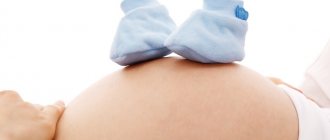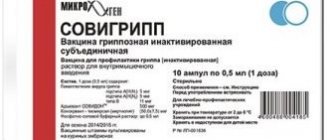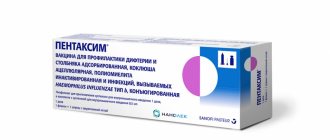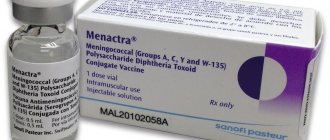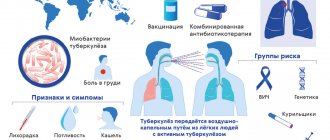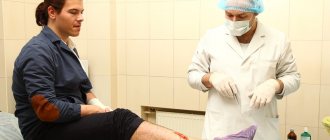Today you can often hear about a vaccine that protects against pneumonia. In fact, there is a drug, and it works against pneumococci, the most common causative agents of bacterial pneumonia. However, pneumococci also cause other serious diseases, such as meningitis, sinusitis, arthritis and endocarditis. But not everyone knows what a protective vaccine is.
Pneumococcal infection is a disease of a bacterial nature that affects the internal organs of a person. The pneumococcus bacterium itself belongs to the streptococcus family and looks like a ball in a shell (under a microscope, of course).
If the immune system is functioning well, it does not lead to any serious problems. However, as soon as the body’s defenses decrease, a negative result will not be long in coming. Immunity may decrease due to hypothermia, stress or overwork. Pneumococcus spreads by airborne droplets at a distance of 1.5 meters. At the same time, the bacterium is quite stable in the external environment and can persist on surfaces for quite a long time.
Sick and atypical. What types of pneumonia are there and how are they different? More details
Types of vaccines
The type of vaccine is selected individually, taking into account parameters such as the person’s age, the presence of diseases, including chronic ones, and bad habits, such as smoking.
Pneumococcal vaccines are divided into two main types:
- Pneumococcal conjugate vaccine (PCV13), which is offered to children and people over the age of 65, as well as those with so-called. background diseases. According to research, protects against 13 strains;
- Pneumococcal polysaccharide vaccine (PPSV23) is intended for people over 65 years of age, those with chronic illnesses, and smokers. According to research, it provides protection against 23 strains.
Today, doctors in Russia use mainly two types of drugs, and both of them are foreign (one American, the other French).
Chief pulmonologist of the Ministry of Health: pneumonia can occur without symptoms Read more
Healthy safety net
Mask, I don’t know you: Muscovites ignore means of protection against the virus
Meanwhile, due to the worsening epidemic situation in the capital, “Covid” buildings are opening again
Russian immunologists and epidemiologists strongly recommend that adults and children get vaccinated against pneumococcus to protect themselves against coronavirus infection. These vaccinations can significantly improve the functioning of the barrier immunity of the mucous membranes, Andrei Prodeus, a research professor at the Kant IKBFU, told Izvestia.
“This is an absolutely confirmed fact: those vaccinated against pneumococcus have less chance of becoming infected and are less susceptible to complications,” said the specialist. “Their immunity can resist any respiratory viruses, including SARS-COV-2. In some regions of Russia, the pneumococcal vaccine is included in free regional programs.
According to the scientist, control of pneumococcal infection seriously reduces any complications of respiratory diseases, especially among children. We are talking about diseases such as purulent otitis media, community-acquired pneumonia, and sinusitis. Most of them are caused by pneumococcus, so if the patient is protected from it, he will recover much faster, added Andrei Prodeus.
Course of injections
Photo: IZVESTIA/Andrey Ershtrem
Discussions about whether a vaccine against pneumococcal infection can also save against COVID-19 have been going on in the scientific world for a long time. Various scientific articles provide evidence that such vaccinations can worsen the condition of those infected or have no effect on their health. However, recent observations show that in countries where the population of pneumococcal vaccinations is higher, mortality from coronavirus is lower.
Focus in the group: why the COVID-19 test is wrong
A connection was found between a false negative test result and the presence of high platelets and C-protein in the blood
In particular, a scientific group from Italy, which included specialists from the geriatric departments of the Faculty of Medicine of the University of Padua and the Biomedical Campus in Rome, published an article in which they analyzed how vaccination against influenza and pneumococcus correlates with the results of PCR tests for COVID-19. The study found that adult and older respondents who received a pneumococcal vaccine in the past year were much less likely to test positive for coronavirus compared to their unvaccinated peers.
When is the vaccine given?
Today, vaccination against pneumococcal infections is included in the National Vaccination Calendar and is mostly administered in pediatric clinics at the place of residence. There are several stages. One dose is administered to children up to 2 months, then repeated vaccination at the age of 4.5 months and the third stage - in the interval of 12-15 months. If these deadlines are not met and vaccination begins later, doctors will suggest a different regimen.
For the first vaccination, a drug is chosen that protects against 13 strains. It also provides immunity to bacterial diseases caused by pneumococcus, such as sepsis, meningitis, and acute otitis media. After a year, it is recommended to use a drug with protection against 23 strains. The PCV13 vaccine is also recommended for use in children aged 2 to 4 years who have not previously been vaccinated.
Adults can be given PPSV23 at any time. It is worth considering that WHO recommends that elderly people aged 65 years and older receive both drugs at once - it is clear that not together, the timing and sequence should be recommended by a doctor.
At the time of vaccination, a person must be healthy, so it is recommended to undergo examination in the form of basic urine and blood tests, as well as an examination by a pediatrician/general practitioner. This will eliminate the risk of complications.
The injection is given intramuscularly or under the skin. It is prohibited to administer such drugs intravenously. Infants are given an injection in the inner thigh because of the potential need for a bandage that may occur. For adults, the injection is given mainly in the shoulder. Immunity to the vaccine develops within 15 days.
Inflammation is not a mild one. Mortality from pneumonia is higher than from coronavirus Read more
Features of childhood vaccination
Parents need to know how to prepare for vaccination:
- the child is not introduced to new complementary foods 3 days before/after the injection. If the baby is breastfeeding, the mother can wait a while with new products, especially allergenic ones;
- A healthy child should not have any complications, but it is better to play it safe and get tested to make sure he is in complete health;
- Doctors recommend refraining from walking and swimming on the day of vaccination. This is necessary in order to exclude hypothermia or the possibility of contracting any other infection.
According to the instructions, the rules for administering the vaccine require an intramuscular injection. If the child is under two years old, they place it in the thigh, the anterolateral muscle, or perhaps in the shoulder.
It is prohibited to mix different vaccines in one syringe.
At the appointment before administering the vaccine, the doctor examines the child and measures body temperature. If there are skin rashes, vaccination is postponed until recovery.
Contraindications and side effects
The pneumococcal vaccine is no different from others - it is high quality. But, of course, before vaccination you need to make sure there are no contraindications. The list of standard prohibitions on the use of such a vaccine:
- Individual intolerance to the components of the drug;
- Previously reported cases of allergies when receiving such a vaccine;
- The first two trimesters of pregnancy - an exception may be personal recommendations from a doctor;
- The presence of ARVI in the acute stage at the time of vaccination;
- Exacerbation of chronic diseases;
- Any fever.
As a rule, no special problems arise when administering the vaccine - at most, a short-term increase in body temperature, local reactions in the form of redness, soreness, mild itching, general drowsiness, weakness and lethargy may appear in the first 12-24 hours. If they persist, you should consult a doctor.
Pneumococcal Vaccination: What Causes Pneumococcus?
As a rule, clinical diseases caused by pneumococcal infection develop when the body’s immunological resistance is impaired, for example, due to hypothermia, as well as against the background of chronic pathology (in children, this mainly means pathology of the ENT organs, adenoiditis, rhinosinusitis, etc.).
In human carriers, pneumococcus can live on the mucous membrane of the oral cavity and upper respiratory tract without causing disease. This is due to the fact that under ordinary, “normal” conditions, the proliferation of bacteria is prevented by local immune factors, which include the tonsils of the pharyngeal ring, antimicrobial enzymes of saliva, the presence of secretory antibodies of the IgA class and neutrophils in nasal and bronchial secretions, and other protective mechanisms.
With sudden hypothermia, depleted immunity, pneumococci penetrate through the mucous membranes into the tissues, as well as down the respiratory tract, bypassing weakened protective barriers. Pneumococcal bacteria secrete special aggressive enzymes (hemolysins, streptokinase, hyaluronidase, etc.), which increase the permeability of small vessels and capillaries. The result of this is swelling and infiltration of the lung tissue with fluid and formed elements, that is, either an organic inflammatory focus is formed in the lung (focal bronchopneumonia), or the pathological process involves the entire lobe of the lung, then lobar lobar pneumonia develops.
Among other infectious diseases that pneumococcus causes, there are also acute catarrhal and purulent otitis media, which especially often occurs in children under 2 years of age, sinusitis, bronchitis, bronchiolitis, glomerulonephritis (inflammatory kidney disease), as well as such severe but relatively rare infections , such as: meningitis, peritonitis, arthritis, polyarthritis, etc.
What is pneumonia and how does it occur?
Pneumonia is an acute infectious disease (inflammation) of the lung tissue, which is caused by viruses, bacteria, fungi and parasites. As a rule, viral pneumonia is the most difficult to diagnose due to rapid microbial infection.
“The root cause of viral pneumonia is usually viruses that infect the mucous membrane of the respiratory tract, disrupt the barrier function of the epithelium, reduce local immunological defense and facilitate the penetration of pathogens into the lower parts of the respiratory system. There, intensive proliferation of microorganisms occurs and inflammation develops, which involves adjacent areas of the lung tissue,” says Madina Abdulaeva.
Pharmacological (immunobiological) properties
Administration of the Prevenar® 13 vaccine causes the production of antibodies to capsular polysaccharides of Streptococcus pneumoniae, thereby providing specific protection against infections caused by 1, 3, 4, 5, 6A, 6B, 7F, 9V, 14, 18C, 19A, 19F and included in the vaccine 23F pneumococcal serotypes.
According to WHO recommendations, for new conjugate pneumococcal vaccines, the equivalence of the immune response of the Prevenar® 13 vaccine was determined according to three criteria: the percentage of patients who achieved a concentration of specific IgG antibodies ≥0.35 μg/ml; geometric mean concentrations (GMC) of immunoglobulins and opsonophagocytic activity (OPA) of bactericidal antibodies (GPA titer ≥1:8 and geometric mean titers (GMT). For adults, the protective level of anti-pneumococcal antibodies has not been determined and a serotype-specific GMT is used.
The Prevenar® 13 vaccine includes up to 90% of the serotypes that cause invasive pneumococcal infections (IPI), incl. resistant to antibiotic treatment.
Vaccination schedule against pneumococcus
It is useful to know that since 2015, vaccination against pneumococcus has been included in the mandatory vaccination calendar of the Russian Federation, as a result of which vaccination against pneumococcus has become mandatory.
The vaccination schedule against pneumococcus involves a three-time administration of the vaccine with one revaccination every other year when starting vaccination for a child under 6 months of age. A two-dose vaccination regimen without revaccination is carried out when the first dose of the vaccine is administered in the interval from 12 to 23 months, and if a child is vaccinated for the first time between the ages of 2 and 5 years, then the primary vaccination is carried out with only one dose of the vaccine without subsequent revaccination.
Compound
| Suspension for intramuscular administration | 1 dose (0.5 ml) |
| active substances: | |
| pneumococcal conjugates (polysaccharide - CRM197): | |
| polysaccharide serotype 1 | 2.2 mcg |
| polysaccharide serotype 3 | 2.2 mcg |
| polysaccharide serotype 4 | 2.2 mcg |
| polysaccharide serotype 5 | 2.2 mcg |
| polysaccharide serotype 6A | 2.2 mcg |
| polysaccharide serotype 6B | 4.4 mcg |
| polysaccharide serotype 7F | 2.2 mcg |
| polysaccharide serotype 9V | 2.2 mcg |
| polysaccharide serotype 14 | 2.2 mcg |
| oligosaccharide serotype 18C | 2.2 mcg |
| polysaccharide serotype 19A | 2.2 mcg |
| polysaccharide serotype 19F | 2.2 mcg |
| polysaccharide serotype 23F | 2.2 mcg |
| carrier protein CRM197 | »32 mcg |
| excipients: aluminum phosphate - 0.5 mg (in terms of aluminum - 0.125 mg); sodium chloride - 4.25 mg; succinic acid - 0.295 mg; polysorbate 80 - 0.1 mg; water for injection - up to 0.5 ml |
Prevenar vaccination: why is it done?
One of the most popular vaccines against pneumonia is Prevenar 13. It has been well researched and has won the highest ratings from experts, which gives confidence in its absolute safety even for the youngest children. Vaccination with Prevenar is carried out from an early age so that the baby develops protective antibodies to 13 serotypes of pneumococcus, since, as mentioned above, children are especially susceptible to pneumococcal infection.
pixabay.com/
How dangerous is pneumonia in children and what are its health consequences?
The main complications of pneumonia are pleurisy, pulmonary destruction (lung tissue abscesses, bullae, pneumothorax, pyopneumothorax), pleural empyema, pulmonary edema and pulmonary heart failure. The most dangerous consequence of the disease is infectious-toxic (bacterial) shock.
If we talk about the consequences of pneumonia for a child’s health, then in the future he may experience repeated respiratory tract infections with a long recovery period and a decrease in local immunity of the respiratory tract mucosa. Children who have had pneumonia are at risk for developing bronchial asthma, pulmonary tuberculosis, and chronic bronchopulmonary diseases.
pixabay.com/Semevent
Release form
Suspension for intramuscular administration, 0.5 ml/dose. 0.5 ml per 1 ml syringe made of transparent, colorless glass (type I).
1 syringe and 1 sterile needle in a plastic package sealed with plastic film. 1 plastic package together with instructions for use is placed in a cardboard box with or without first opening control. 5 syringes are placed in a plastic package sealed with plastic film. 2 plastic packages and 10 sterile needles along with instructions for use are placed in a cardboard box with or without tampering.
